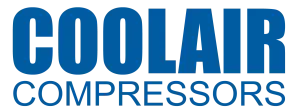Piping Material Features Comparison
|
| Piping Features |
Stainless Steel(Type 304L) |
Mild Steel |
Blue anodized Aluminum Alloy |
| Weight (Dia 6inch, Length 6m) |
127.2 |
169.6 |
29.142 |
| Anti-Corrosive |
Yes |
No |
Yes(100%) |
| Pressure drop (Dia 2 inch Length= 20m, Airflow=3 cubic metres/Minute, Pressure=10 bar) |
0.25 |
0.4 Bar |
0.1 |
| Efficient Energy Use |
High |
Low-moderate |
High( Potential Cost savings of 34%) |
| Structural Durability |
Very Strong |
Very Strong |
Strong |
| High Thermal Endurance |
Yes |
Yes |
Yes |
| Installation Ease |
Less Difficult |
Difficult |
Easy(High Flexibility and Modularity) |
| Simple Installation |
Approx 6 feet length per hour |
Approx 6 feet length per hour |
Approx 45 feet Length per hour |
| Manpower and Work Hours Needed for 2″ Pipe Over 3000 Feet |
Approx 600 man-hours/8 men for 2 weeks |
Approx 600 man-hours/8 men for 2 weeks |
About 100 man-hours with 8 workers, completed in under 2 days |
| Annual Charges for Installation, Commissioning & Operation |
Approx 3000 dollars |
Approx 7820 dollars |
Approx 1300 dollars |
| Installation Cost Breakdown: Material % / Labor % |
30% / 70% |
25% / 75% |
80% / 20% |
| Texture of Surface |
0.03 |
0.05 |
0.001 |
| Required Specialized Tools: Welder, Threader, Groove Cutter |
Yes |
Yes |
No |
| Quality of Air |
High — When needed, these pipe systems comply with ISO 8573-1:2010 air quality standards |
Low( Not according to !SO 8573-2010 air quality standards) |
High — These pipe systems support compliance with ISO 8573-1:2010 air quality standards when required. |
| Cost Rate per Meter |
Almost 2 less than Aluminum |
3 Times less than Aluminum |
163.64 Dollars |
| Service Life Depends on Environment, Pipe Design, and Grade |
30 years |
40 years |
20 years |
| Upfront Installation Cost |
Material : 30% Labor:70% |
Material : 25% Labor:75% |
Material : 80% Labor:20% |
| Care and Maintenance |
Difficult — Rust buildup under pipes and fittings can reach machinery, requiring weekly preventive maintenance. |
Difficult (Accumulation of rust under pipes and fittings which travels to machinery may require preventive maintenance every 3-4 days) |
Easy — No rust buildup, with preventive maintenance needed every 4 weeks. |

